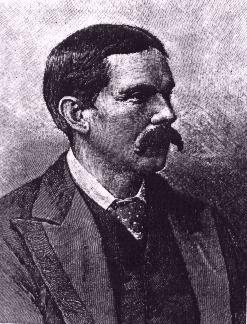

16312.744 Poultney
8
Bigelow, son of John
7,
(Asa
6,
David
5,
David
4,
John
3,
Joshua 2,
John
1)
and
Jane (Poultney) Bigelow,
see poultn8b.htm.for more on Poultney
and H.G. Wells ............................ROD
see poultn8c.htm. for Poultney and Travels
Abroad, etc...............ROD
Note2:
Subject: Poultney Bigelow
Date: Sat, 17 Mar 2001 00:44:06 -0700
From: Rita Rainville gorilla@mindspring.com
Hi Rod,
I was browsing through the Bigelow site (it's wonderful,
thank you for all your work) and read about Poultney. I was interested
because some years ago I found a Howe Bigelow book in an antique store
and bought it. In it were many notes about the previous owner's (Ida
Bigelow Merrell) lineage. She was somehow connected to Poultney and
had a newspaper article from the Todelo Blade in 1926 about Poultney sueing
H.G.Wells for $50,000 for calling him a bore.
Rita Rainville
gorilla@mindspring.net
Article:
This article is from the Toledo Blade (Toledo, Ohio) Friday, Feb 12,
1926, Page 31.
LECTURER SUES H.G.WELLS FOR $50,000 AFTER BEING CALLED BORE
MAD TEA PARTY STARTS DISPUTE
After Dinner Speaker Says Famous Author Looked Like
Bond Salesman.
(New York, Feb 12, (AP) Poultney Bigelow,
American Lecturer and author
has announced that he is starting a $50,000 slander suit in London
against
H.G.Wells, The English novelist, because he resents being classified
as a
bore.
The trouble started at a "Mad Tea Party" given sometime
ago by Countess
Russell at her London apartment.
Mr. Bigelow published a version of the party in
a London paper to which
Mr. Wells replied vigorously in an open letter.
Says Wells talked prices
The Bigelow version of the party said that Wells
looked like a
"prosperous stock broker or bond salesman" and "chatted pleasantly
of the
fabulous prices forced on him by the paradoxical publishers of hundreds
of
periodicals in every corner of the world. Verily, it was a fairy
tale gone
mad."
Then Anthony Hope, also of the party looked out
of a window, Mr. Bigelow
averred and "expressed regret that so glorious a landscape and such
graceful
arches as characterized the stone bridge should be marred by a rectangular
iron railway structure."
"Oh," exclaimed Wells in the Bigelow version, "How
can you utter such
words? To me a railway has elements of sublimity. It is
eloquent. It
means progress."
"Even Anthony Hope winced," Mr. Bigelow wrote.
The Wells recital of what happened differs materially.
"Unable to Repulse Pest"
"Sometime ago I met a Mr. Poultney Bigelow at Lady
Russell's flat in
London," he wrote. "He sought an introduction to me and forthwith
started
at me with ill-mannered inquiries about my sales income and such like
impertinences. I did my best to convey to him that he had as
much right to
pester me about these things as to ask where I bought my trousers or
whether
I had an overdraft at the bank. After a time, I succeeded in
stunning or
killing these tentatives to vulgarity and then he proceeded to discuss
the
view.
"A change in the topic meant no change in the quality
of his discourse.
The Charing Cross bridge was ugly, materialistic, rectangular.
To people
like Bigelow, anything curved is more beautiful than anything rectangular.
"The bridge," I said, exasperated beyond endurance,
"at sundown or at
twilight, can be the most beautiful or most romantic thing in the world.
There was an American named Whistler who could have made even you see
the
lovliness of it."
Mr. Bigelow, at his home, Maldon-on-Hudson, says
"How am I to make a
living as an after-dinner speaker if I am slandered by being called
a bore?"

